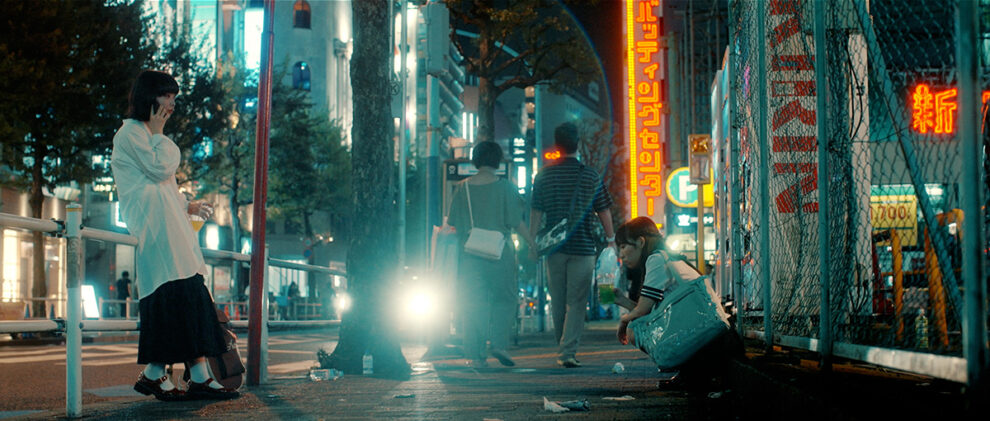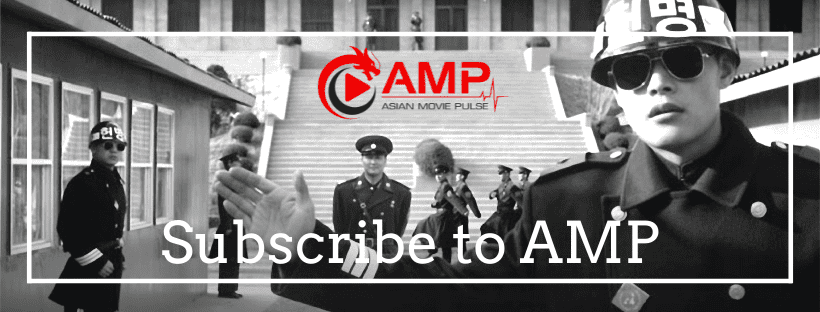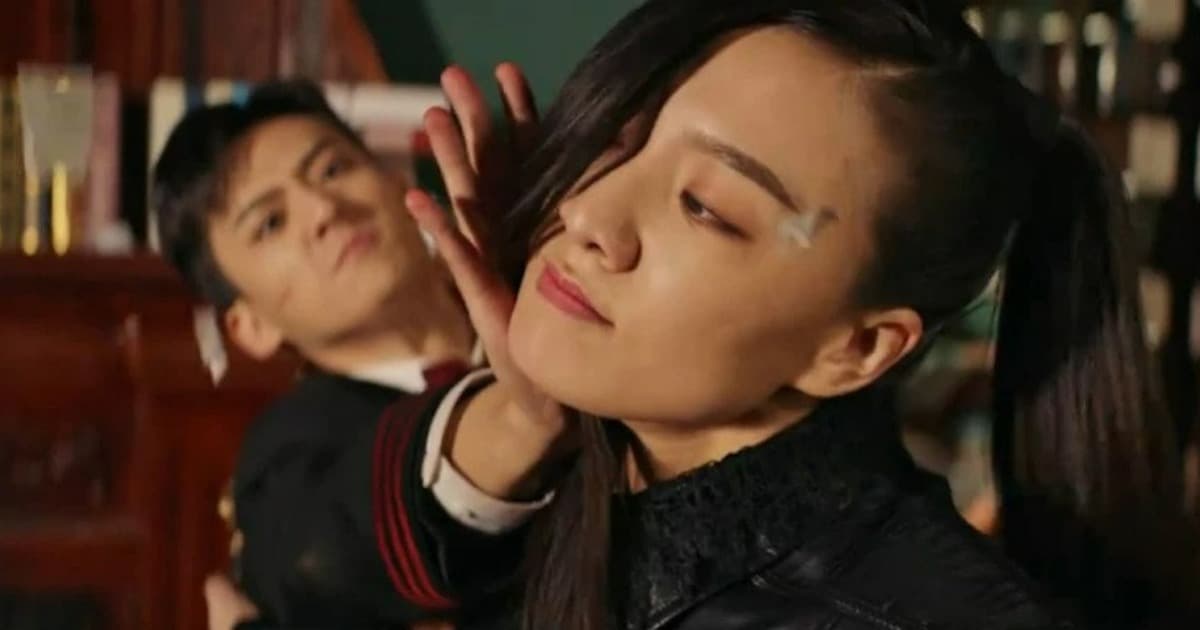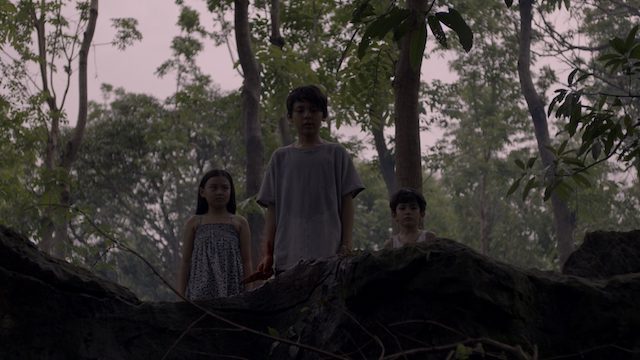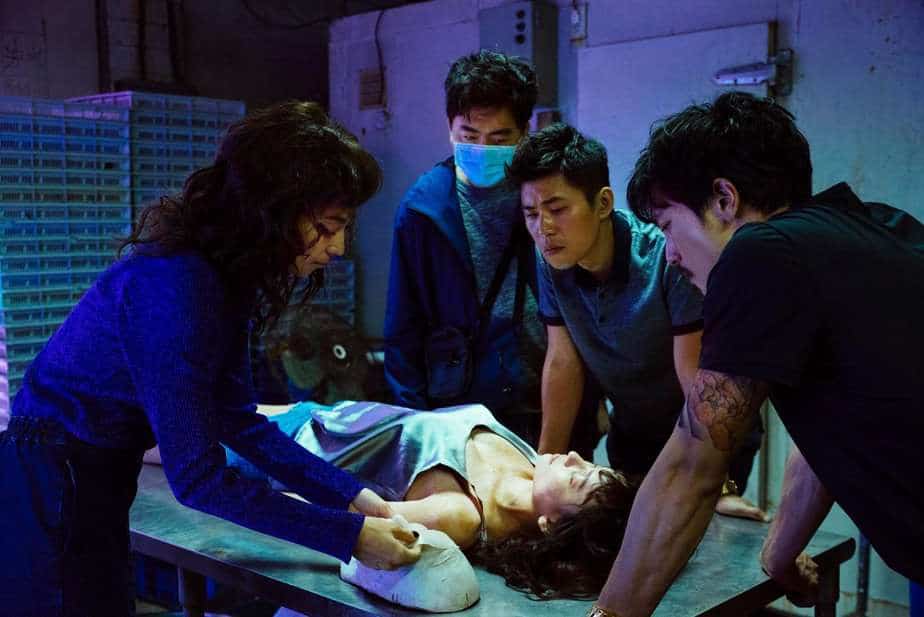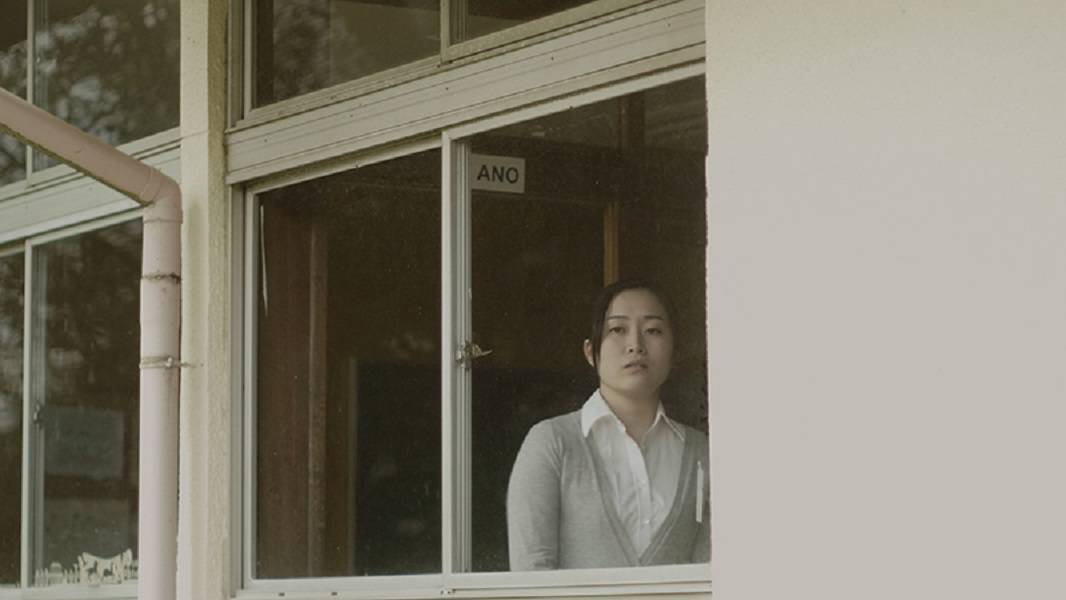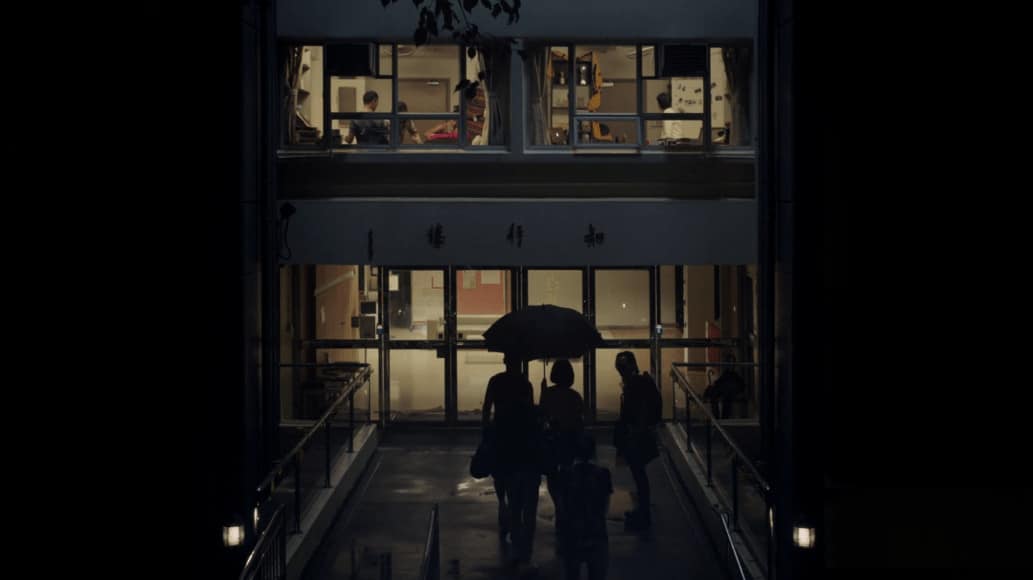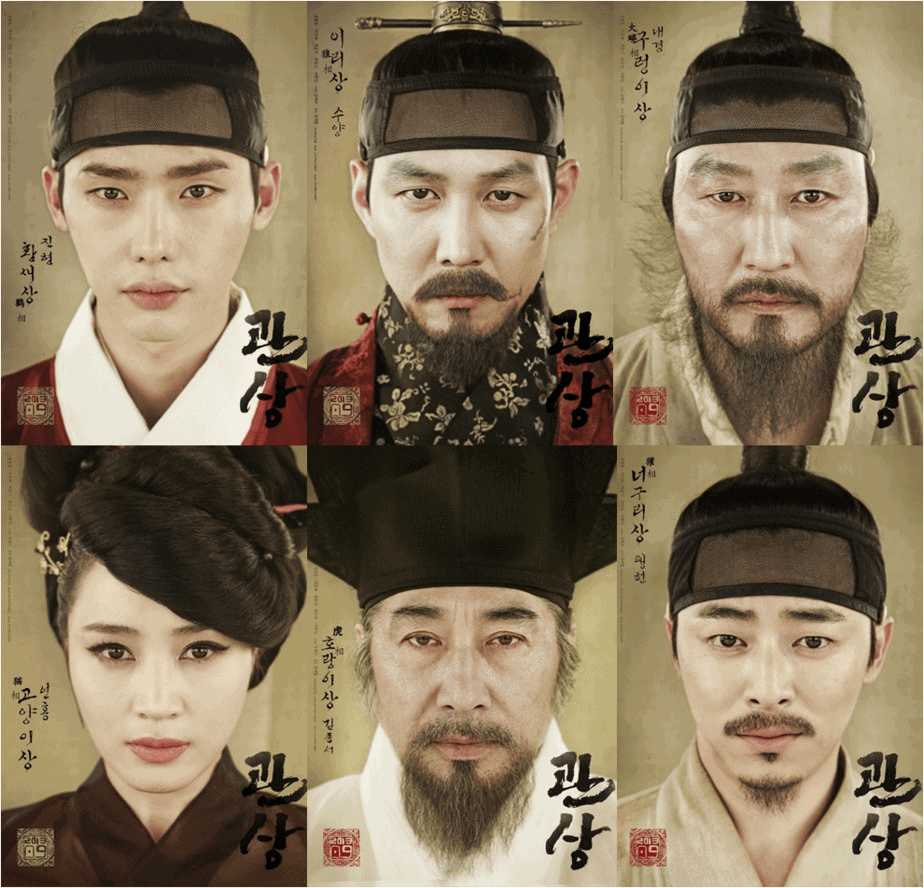A momentary lapse in the frenzied disorder escalating uncontrollably from the urban machine, two young women detach themselves from the city's pulsating rhythm and flow: one, a musician, confides to her parents on the phone her dream may not be as attainable as previously hoped; the other, a callgirl, patiently awaits for her driver as she flits in and out of the phone conversation unfolding just feet away from her, the realizations made and the desires to quit striking a chord as she sips on her green tea through a straw. This precursory distraction, a fleeting moment of intense introspection, distinguishes “Detouring Blue”'s ravishing torpor with neither the promise nor the hope of resolution. Instead, Ryo Kimura submerges his cast and his audience deep into an unfulfilling emptiness, one where escape feels permanently out of reach.
“Detouring Blue” screened at Osaka Asian Film Festival

From the backseat of her driver's car, Saori Mori's Shiori – known to her clients as Ringo – looks on as the world just on the other side of the glass passes by, unperturbed by the idle conversation Kotsuka (Yutaro Watanabe) struggles to initiate in order to break the silence. As he makes one detour before picking up Lemon (Ami Kamimura) on her way to see her sugar daddy, Shiori ponders upon high-school memories, of finishing her screenplay and running those lines with her closest friend, lines which hold weight, more depth, than their surface words project. Dazing between the warmth of this memory and Lemon's flustering and fidgeting, Shiori chirps in with her two cents every now and then as Kotsuka makes more detours in a city oblivious to their existence, their conspicuous reservations and inhibitions flickering in the empty space, not unlike the city lights illuminating the backstreets of Tokyo's many districts. But it is within these moments Shiori stumbles back into her longing, reaching in within her memories for the warmth and guidance of what has been, piecing the dots together of these moments around her before she makes her own realizations.
Their vulnerabilities unraveling with every detour Kotsuka takes until they are rendered exposed and unclothed, Kimura's trinity of unlikely souls languish in the ennui of the metropolitan glow, an alienating prism beholden by hues of blue that once exuded a staggering allure to those desiring to manifest their hopes and dreams. As they gravitate toward some semblance of meaning beyond the inanity of their present, the three empathize with one another, theorizing over why Lemon's previous client only desires to kiss her for a full 90-minute session, over the impacts and roles each costume brings to their sessions. With little else in common between any of them, such conversation goes beyond something to do to kill time between point A to point B; in an industry hellbent on objectifying and dehumanizing those caught within its uproar, such moments offer a shared intimacy long sought after. Kimura seamlessly stretches such wanton intimacy to its extremes albeit minutely, lingering on words spoken and unspoken but most importantly on Mori's and Kamimura's facial reactions, which one brimming with unparalleled profundity.
Both Mori and Kamimura embellish their roles with bellowing subtleties, their nuances in each eye-widening response to a throwback to past lives speak volumes at a time when Shiori and Lemon appear to have reached a detour in their true directions. There is a nonchalant detachment to their performances all too real, all too relatable to those whose innocence and optimism have been abandoned and deposed by monotony and weariness, either desperately clinging to those lifelong dreams or have succumbed to the weathering of their reality; even in Shiori's memories, Mori encapsulates that lust for life perfectly, betwixt with a yearning for something far grander. So perfectly evocative is this despondency, it becomes impossible to not welcome itself beyond the cinema screens.
This manifests itself tenfold thanks to Kanji Eguchi's poignant score, its adept fingers finely tuned to Tokyo's incandescent glow brought to life by cinematographer Masayoshi Yanagisawa. Between them, night-time Tokyo takes on a foreboding, uncredited light – neither welcoming nor comforting – a labyrinthine, almost Stygian dominion whose inhabitants risk existential institutionalization despite “Detouring Blue”'s hopeful denouement suggesting otherwise. Predominantly restricted to the confines of Kotsuka's vehicle, Yanagisawa proves adept at emboldening expanses where no expanse ought to exist, projecting the loneliness of Kimura's subjects for all to bear witness. This is his realm, where he is free to linger on a moment between two realities – inside and outside – in a single frame, strengthening this psycho-spiritual disconnect even further.
Beautiful, wistful, and deliberate, “Detouring Blue” eschews every modicum of permanence, choosing instead to stress the fleeting insignificance and tenuous ephemerality of human interaction (or lack thereof). With each moment Shiori connects the dots on her ride it is impossible not to long and yearn with her, not just for the right detour out of her predicament but for her realization to mean something even for the briefest of moments. A glimmer of happiness held on to for over a decade, the film closes with its promise of little-to-no resolution, and yet as a distant, younger Shiori rides off towards the horizon we can only hope that a small measure of peace can indeed be found.


